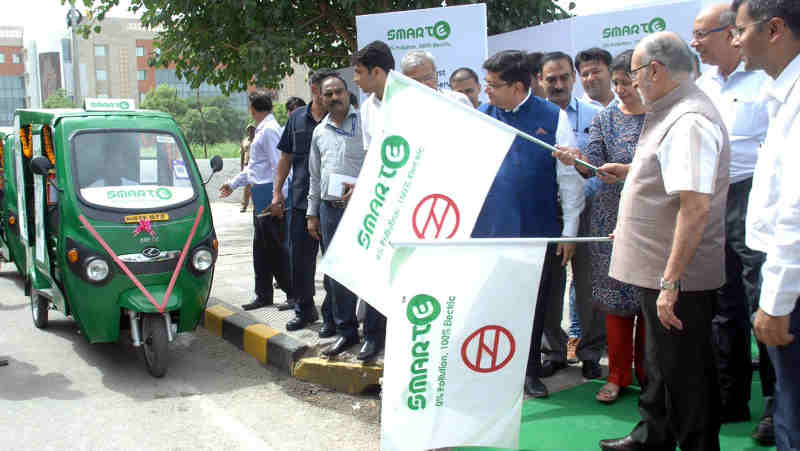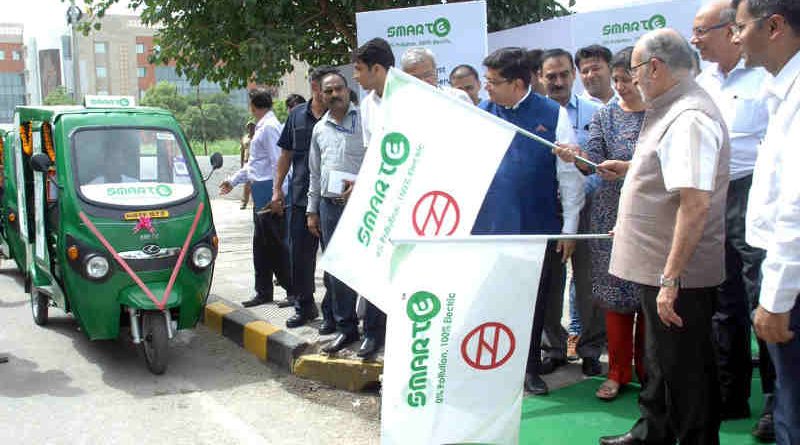Steps to Promote Electric Vehicles in India

The Government of India has granted exemption to Battery Operated Transport Vehicles and Transport Vehicles running on Ethanol and Methanol fuels from requirement of permit.
Ethanol fuel is ethyl alcohol, the same type of alcohol found in alcoholic beverages, used as fuel. It is most often used as a motor fuel, mainly as a biofuel additive for gasoline. Ethanol is commonly made from biomass such as corn or sugarcane.
Methanol is also an alternative fuel for internal combustion and other engines, either in combination with gasoline or directly (“neat”). While ethanol is less toxic and has higher energy density, methanol is less expensive to produce sustainably and is a less expensive way to reduce the carbon footprint. Methanol is from hydrocarbon or renewable resources, in particular natural gas and biomass respectively.
In order to promote electric vehicles, the Government of India has notified for retro-fitment of hybrid electric system or electric kit to vehicles and has specified the type approval procedure of electric hybrid vehicles.
[ Download and Read: Clean Climate Environment News Magazine ]
The Government has notified that the registration mark for Battery Operated Vehicles is to be on a plate with green background. Further, for the promotion of electric mobility in the country, the Government had launched Phase-I of the FAME India Scheme [ Faster Adoption of Electric (& Hybrid) Vehicles in India]. This was initially for a period of 2 years and has subsequently been extended till 31st March 2019.
All electric and hybrid vehicles, including public transport, registered under the scheme are being incentivized under the Demand Creation focus area of this scheme. The Phase-1 of FAME Scheme is, at present, available up to 31st March 2019 and is available for all registered electric vehicles with lithium ion batteries.
Ministry of Power has issued a policy on charging infrastructure and has issued a notification clarifying that charging electric vehicles will be a service, not a sale of electricity. The Indian Space Research Organisation (ISRO) has commercialized indigenously developed lithium ion battery technology and has selected 14 companies for transfer of technology.
The NITI Aayog has taken an initiative to provide a Model Concessionaire Agreement (MCA) document for introducing Electric-Bus Fleet in Cities for Public Transportation on Public-Private Partnership (PPP) mode on Operational Expenditure (per km basis) Model rather than paying upfront capital cost.
Ministry of Housing and Urban Affairs has made amendment in the Urban and Regional Development Plans Formulation and Implementation (URDPFI) guidelines to provide for electric vehicle charging stations in private and commercial buildings.
Recently, the Lt. Governor (LG) of Delhi Anil Baijal had flagged off an array of smart e-rickshaws in Dwarka for metro rail commuters. According to an LG office communique, the launch of e-rickshaws is the first and significant step of Delhi Metro service toward pollution-free green and clean Delhi.





